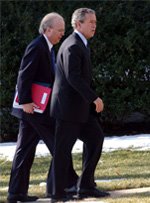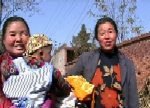According to a local journalist, the censors confirmed today that Zahari's 17 Years was passed with a PG rating last week. Yet, when I spoke to a festival staff yesterday, he said the screening was cancelled as the censors has yet to authorise the screening.
Somebody bungled. You go figure.
All public screenings of films and videos in Singapore require a permit from the Board of Film Censors. According to its website, exceptions are made for "educational videos, documentaries, programmes for children and pre-1966 movies."
Zahari's 17 Years is my second self-directed film - after Singapore Rebel, for which I am still undergoing police investigations for violating section 33 of the Films Act which prohibits films which contain "either partisan or biased references to or comments on any political matter."
Recently, we have seen a run of documentaries and events highlighting Singapore's political past.
In December, government-linked companies sponsored the "History of Singapore", a three-hour extravaganza on Discovery Channel which had included interviews with former political detainee Fong Swee Suan and veteran opposition leader JB Jeyaretnam.
The recent demise of PAP old guard S. Rajaratnam also precipitated a telethon of tributes on ChannelNewsAsia, sparking a renewed interest in Singapore's post-independence history.
On February 26, a forum entitled Detention-Writing-Healing was held at the Esplanade. Speaking for the first time in public, ex-political detainees Tan Jing Quee and Michael Fernandez described to a packed audience on their experiences under detention without trial. Said Zahari was invited to speak at the same forum but he did not travel due to health concerns.
S'pore International Film Festival hosts political films
The following films will be screened in this year's program, except the last (which due an unsolved gaffe, was not screened).

The Last Communist
Director: Amir Muhammad
Country: Malaysia
Loosely based on the autobiography of Chin Peng, the legendary Malayan communist guerrilla leader, the film tells of the little-known role of the Communist Party of Malaya towards the dissolution of British rule in the country. It features lives of people in present-day Sitiawan, Chin Peng's birthplace in Perak, Malaysia and interviews with Malaysian communists currently living in exile in southern Thailand. Filled with songs and dance routines, the film is an unusual pop cultural document of Malaysian history.

GIE
Director: Riri Riza
Country: Indonesia
Idealist, teacher, writer, rebel and a central yet unknown political activist in the 60s, the darkest era of Indonesian history - that is who Chinese-Indonesian Soe Hok-Gie is. Even as the people around him adjust to Suharto's new regime, he continues to fight. His uncompromising idealism drives those close to him away - his friends and the woman he loves. Awarded the Hubert Bals Fund of the International Film Festival Rotterdam for its content and artistic value and winner of the Best Movie at the 2005 Indonesian Film.

Garuda's Deadly Upgrade
Director: Lexy Rambadeta/David O'Shea
Country: Australia / Indonesia
The death and murder of Munir Said Thalib, Indonesia's leading human rights activist convulsed Indonesian society leading to allegations of military and intelligence involvement. In Garuda's Deadly Upgrade, employing interviews with Suciwati, Munir's wife, and colleagues, Lexy Rambadeta and David O'Shea give an eerie but at times haunting account of the activist's last moments before he boarded Garuda Airlines, Indonesia's national carrier, bound for the Netherlands, and who died on board of arsenic poisoning.

Bush's Brain
Director: Joseph Mealey / Michael Shoob
Country: USA
The explosive documentary Bush's Brain suggests that George W. Bush would never have been president without Karl Rove, the President's closest advisor. Rove is the man known as "Bush's Brain", the most powerful political figure America has never heard of, the Wizard of Oz behind the curtain of today's Presidential politics. Based on the best-selling book by journalists James Moore and Wayne Slater, Bush's Brain chronicles Rove's history of political chicanery and dirty tricks.

Chinese Villagers' DV Documentaries On Village-Level Democracy
Director: Various
Country: China
This film is a collection of 10 short documentary films made by amateur filmmakers from around China. The film explores the experience of democracy by giving a rare glimpse of lives in rural China and the changing dynamics of village structure and governance. The effort is a project under the EU-China Training Programme on Village Governance and the first of its kind to be produced in China.

Waking Up The Nation
Director: Agostino Imondi
Country: Australia / Germany
A group of Australians concerned about the constant media reports of human rights violations against asylum seekers in Australia's immigration detention centres decides to embark on a two-month /12,000 kilometre journey around the country to visit as many detainees as possible, to raise awareness as well as to expose some of the mistreatments.

To Die For
Director: Andibachtiar Yusuf
Country: Indonesia
In Indonesia, in political elections, most people don't know what they should vote for. But there are some people who really know what they should vote for and die for it.

Terlena - Breaking of a Nation
Director: Andre Vltchek
Country: Indonesia
Documentary about a nation that still believes the propaganda created by one general and his army. This film gives voice to those silenced during the dictatorship of Soeharto, and takes an in-depth look both on a cultural and personal level.
Migrant Workers Are Not Terrorists!
Director: Jouni Hokkanen/Simojukka Ruippo
Country: Finland
Christian was a member of the communist party in Germany, but was kicked out because he was too radical. Now the veteran agitator tries to start a revolution in Seoul. During the day he protests outdoors for migrant rights, in the night he sleeps in a tent at Myeong-dong, the Korean equivalent of Times Square.

The Russell Tribunal
Director: Staffan Lamm
Country: Sweden
Stockholm, 1967: With participants including Jean-Paul Sartre, the Russell Tribunal investigates US war crimes in Vietnam. Victims of the war are called to witness. Today, from a distance of more than 35 years, the director reflects on his old footage from the tribunal, as well as some never been seen before.

Zahari's 17 Years
Director: Martyn See
Country: Singapore
In the early hours of 2nd February 1963, security police in Singapore launched Operation Coldstore - the mass arrests and detention of more than a hundred leaders and activists of political parties, trade unions and student movements, for their alleged involvement in "leftist" or "communist" activities. One of those arrested was former newspaper editor Said Zahari, who had been appointed the leader of an opposition party just three hours earlier.
9 comments:
Martyn See,
Why don't you let Singapore bury its past and move on. So what if a handful of people suffered under the ISD/ISA, the majority enjoyed a materially satisfying and general affluent life. Singaporeans should need to care about those who suffered as long as they reap the fruits. Why are you up to such sinister activities to remind us of the ugly past and try your utmost to evoke feelings of guilt and injustice among us.
We just want to be left alone to enjoy the economic fruits, the fruits that the majority of our families are eating. The suffering of the few does not mean much to us, they knew that all there was to know about avoiding presecution, it is their own fault that they stood up for their beliefs and were taken care of by the system. The system is there to protect the majority of the people, it ensures the safety of the majority and exists for our own good.
As the MM Lee put it across so well in a recent current affairs programme that is not classified as "party-political", POLITICS is about life, it is about the good life to be enjoyed by you and your family, the economics opportunities and jobs. Politics is not about the freedom of a people, not about their rights nor their ideas.....it is about the economics that deliver the tangibles the food we can put our mouths, the cash that we deposit in the bank and cars that take us around in comfort.
Martyn See,
Why don't you let Singapore bury its past and move on. So what if a handful of people suffered under the ISD/ISA, the majority enjoyed a materially satisfying and general affluent life. Singaporeans should not need to care about those who suffered as long as they reap the fruits. Why are you up to such sinister activities to remind us of the ugly past and try your utmost to evoke feelings of guilt and injustice among us.
We just want to be left alone to enjoy the economic fruits, the fruits that the majority of the families in S'pore are eating. The suffering of the few does not mean much to us, they knew that all there was to know about avoiding presecution, it is their own fault that they stood up for their beliefs and were taken care of by the system. The system is there to protect the majority of the people, it ensures the safety of the majority and exists for our own good.
As the MM Lee put it across so well in a recent current affairs programme that is not classified as "party-political", POLITICS is about life, it is about the good life to be enjoyed by you and your family, the economic opportunities and jobs. Politics is not about the freedom of a people, not about their rights nor their ideas.....it is about the economics that deliver the tangibles; the food we can put our mouths, the cash that we deposit in the bank and cars that take us around in comfort.
Political films can boost the economy too.
As of January, 2005, Fahrenheit 9/11 has grossed nearly US$120 million in U.S. box office, and over US$220 million worldwide, an unprecedented amount for a political documentary;
That's too bad, yet almost typical. As for the anonymous double poster, everyone's entitled to their opinion. So sorry for yours.
Politics, sometimes defined as "the art and science of government"[1], is a process by which collective decisions are made within groups. Although the term is generally applied to behavior within governments, politics is observed in all human (and many non-human) group interactions, including corporate, academic, and religious institutions.
One theorist, Harold Lasswell, has defined politics as "who gets what, when, where, and how." An alternative definition, put forth by political scientists Dickerson and Flanagan, is that politics is a "process of conflict resolution in which support is mobilized and maintained for collective projects".
If MM Lee says it's about putting food on the table & the comforts of life, then it is a narrow version of the above.
Why should you ever bury the past? Should the people just forget Hitler, the holocaust just because Hitler built the first autobahn, the German super highway? Or how about the Japanese atrocities, should they be forgotten, just because Japan has also developed places like Taiwan?
I may be exaggerating if I compare this to the unfortunate who were victims of the ISA but the past should never be forgotten.
Even though the history has many bad examples, this still makes us able to value the good aspects, as well.
We may take Andrew Jackson as an example, who is known for Jacksonian Democracy but also the fate of Native Americans on the Trail of Tears.
It may, however, be the case that the issue in Zahari's 17 Years deals with something that Singaporean leaders have not dealt with. A history that hasn't yet become history because most participants are still alive and prefer not to deal with it.
Operation Colds Store decimated political opposition to the pro-colonialist PAP government. More than a hundred individuals at least were illegally detained, closer to 200 is probably more accurate. To brush this off as a 'handful' is shameful.
There must be a proper closure. Otherwise sooner or later this chapter in S'pore's history will return to haunt PAP.
To singaporegrrl and ghormax and others, with all due respect, I think you guys have misinterpreted the "anonymous double-poster's" posting. If you read his posting again, perhaps you will begin to see that, in his own sly way, he is actually being ironic. If you read carefully, you will see the sarcasm inherent in lines like:
"Why are you up to such sinister activities to remind us of the ugly past and try your utmost to evoke feelings of guilt and injustice among us?
"We just want to be left alone to enjoy the economic fruits, the fruits that the majority of our families are eating. The suffering of the few does not mean much to us, they knew that all there was to know about avoiding presecution, it is their own fault that they stood up for their beliefs and were taken care of by the system."
The use of the phrase "ugly past" in the first quoted line above should already have been a telling sign of irony. You see, "Anonymous doubleposter" is merely re-expressing what many perceive is the Singapore establishment's stance towards dissent in his own, peculiar sardonic way.
So, with all due respect, dear commenters, please read the postings really, really carefully before you jump to conclusions. Just my two-cents' worth. Thanks.
Post a Comment